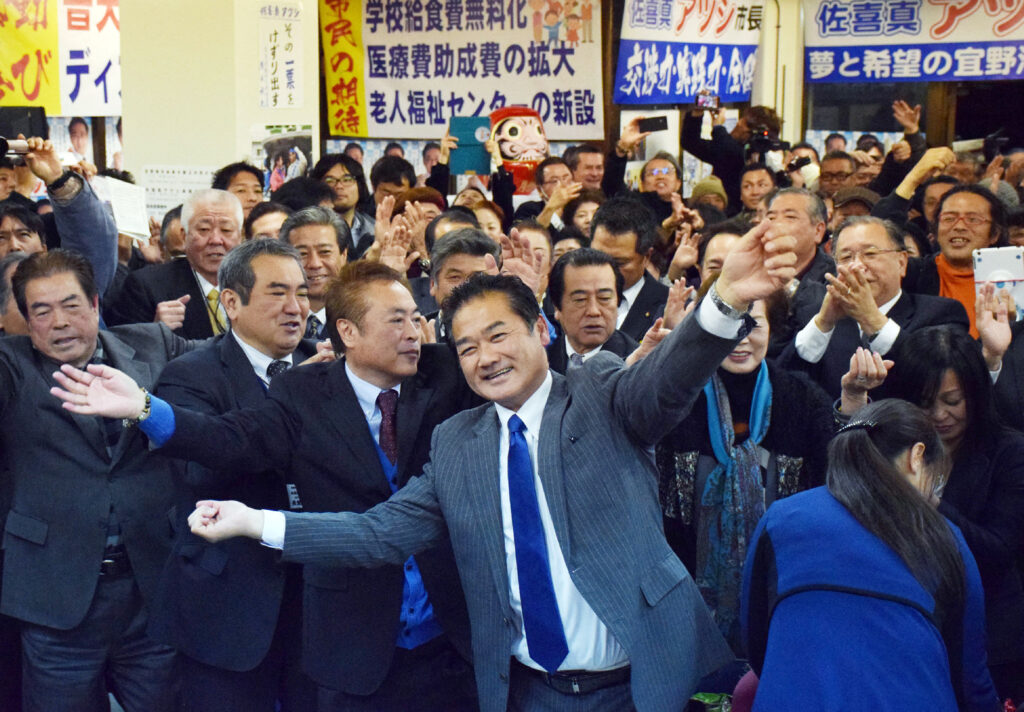
- ARAB NEWS
- 02 Aug 2025

GINOWA, Okinawa Pref.: Atsushi Sakima, a candidate backed by Japan’s ruling Liberal Democratic Party and its coalition partner, Komeito, has won a mayoral election in Ginowan in the southernmost Japan prefecture of Okinawa.
In Sunday’s election, Sakima, a 60-year-old former Ginowan mayor, defeated Isao Tobaru, a 65-year-old former member of the Ginowan assembly, and corporate representative Takashi Higa, 47. Tobaru was endorsed by three parties in the opposition camp–the Constitutional Democratic Party of Japan, the Japanese Communist Party and the Social Democratic Party.
It is the third time that Sakima has won a Ginowan mayoral election.
The voter turnout was 53.27 percent, down from 63.49 percent in the previous election.
The latest election took place as former Ginowan mayor Masanori Matsugawa passed away in July, during his tenure, and was a de facto one-on-one battle between Sakima, who supports the relocation of the U.S. Marine Corps’ Futenma air base in Ginowan to the Henoko coastal area in Nago, another Okinawa city, and Tobaru, who was backed by the “All Okinawa” camp, which opposes the relocation.
Sakima expressed his intention to continue the policies of Matsugawa, his successor, and emphasized his achievements during his two terms of six years as mayor. He also pledged to work on utilizing the site currently hosting the air base after the relocation in step with the central government.
Tobaru underscored child-rearing support measures, such as making child care services and school lunch free, as a key policy and pledged to manage the city government from the viewpoint of citizens. Okinawa Governor Denny Tamaki supported him during the election campaign.
In response to the election result, Chief Cabinet Secretary HAYASHI Yoshimasa, Japan’s top government spokesman, told a news conference Monday, “We will continue to do our best to realize the full return of the site of the Futenma air base (to the Japanese side) as soon as possible and reduce the base-hosting burden (on Okinawa) while providing detailed explanations (about the relocation) to local communities, including Ginowan.”
JIJI Press